A first-of-its-kind design school is creating shrewd businessmen in traditional artisans
Somaiya Kala Vidya takes aboard textile artisans across different craft forms and helps establish them. The school offers design and business management courses for traditional artisans of Kutch.
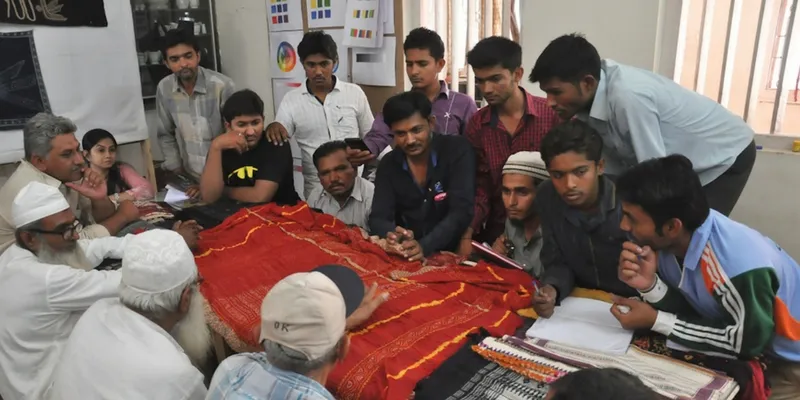
Handicrafts is India’s second largest employer with close to 7 million artisans engaged in diverse craftwork. However, with the Indian market flooding with cheap imported goods from the east, artisans at home are either risking selling their products at low prices or losing buyers for their art.
Without formal training and business education, Indian artisans find it difficult to compete in the market, which often makes them less motivated to pursue their work for a living. It eventually leads to the loss of hundreds of years of technical skills, craftsmanship, and an important part of our cultural heritage.
Acknowledging this situation and rising up to it, K. J. Somaiya Gujarat Trust has set up Somaiya Kala Vidya as a design school for artisans.
Design education for artisans
Somaiya Kala Vidya was founded in March, 2014, with the aim to transform a programme in design education for artisans into an institute. Judy Frater, Ashoka Fellow and Co-founder of Kala Raksha, had developed design education as Kala Raksha Vidhyalaya with her Ashoka Fellowship.
After successfully directing the programme for eight years, she joined forces with the K.J. Somaiya Gujarat Trust, founders of Somaiya Vidyavihar, an educational institute of over 50 years.
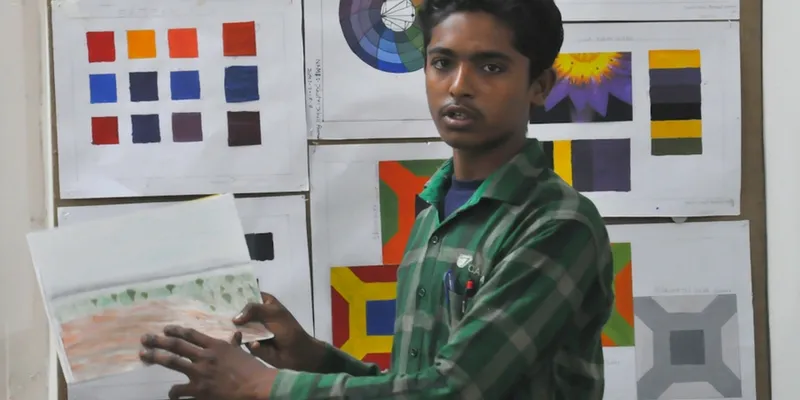
Judy, who has been working with the Kutch artisans for years, received the Ashoka Fellowship in 2002 to establish Kala Raksha Vidhyalaya, the first design school for artisans. In 2009, Judy received the Sir Misha Black Medal for Distinguished Service to Design Education.
The Kala Vidya teaches artisans to use design, traditional identity and business effectively for new markets. The institute enables direct access to higher education, raises the capacity of artisans, and generates value for traditional arts.
Programmes offered
Somaiya Kala Vidya offers ‘Design’ and ‘Business and Management’—11-month courses for traditional artisans of Kutch.
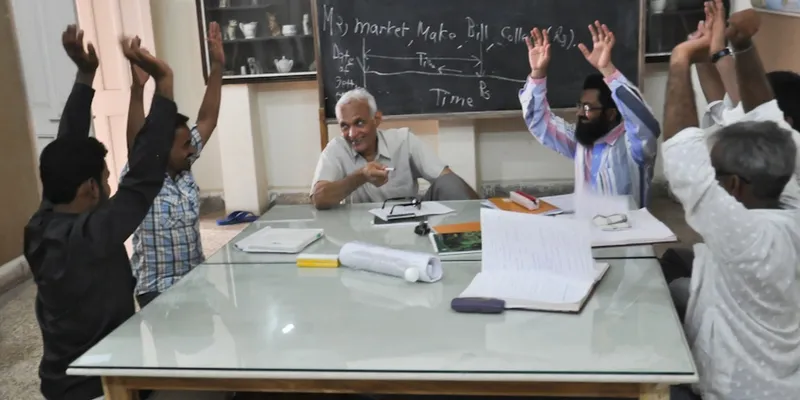
The courses include daily English and computer classes, and culminate in a popular locally held convocation and fashion show. The institute also holds artisan-to-artisan outreach programmes in regions outside Kutch, which are three-year programmes in which Artisan Design graduates mentor artisans in areas with less exposure. These include collection development and exhibition, and condensed design education specially tailored for those participants.
The school also offers alumni services in the form of concept development and technical upgrading workshops for graduates, and co-design programmes for artisan designers and design students from other institutes.
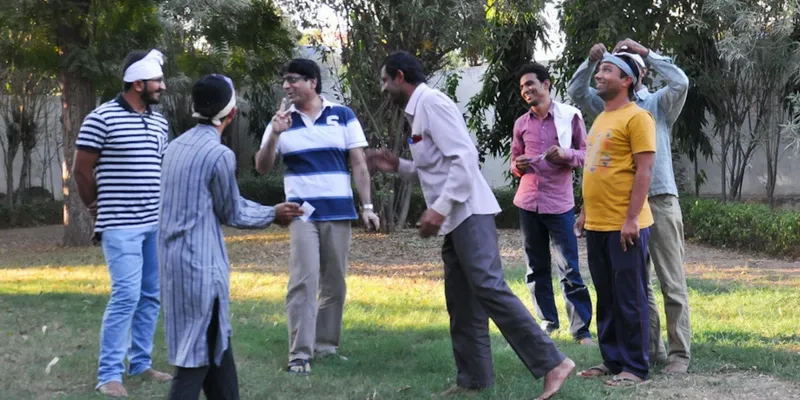
“Currently, we are collaborating with University of Wisconsin in Co-Design. As sustainability programmes, Somaiya Kala Vidya holds workshops and a 22-day course in craft traditions of Kutch for non-artisans. This year it will launch Open Studio Tours in Ajrakhpur and Bhujodi which connect visitors to the network of Artisan Design graduates,” says Judy.
Somaiya Kala Vidya added a post-graduate course in Business and Management for Artisans (BMA), outreach programmes, and a course in Kutch Textile Traditions to the core design course, and began outreach programmes in regions less exposed than Kutch to share the positive impacts of education for artisans.
Bracing for challenges
“Somaiya Kala Vidya started with the former staff and advisors of Kala Raksha Vidhyalaya. Their experience and expertise enabled quick establishment of the institute. The challenge of small temporary premises was met with enthusiasm and good humour of the eager artisan students.
“While the institute is funded over 60 percent by K.J. Somaiya Gujarat Trust, the balance of the budget must be raised. This presents a constant challenge,” says Judy.
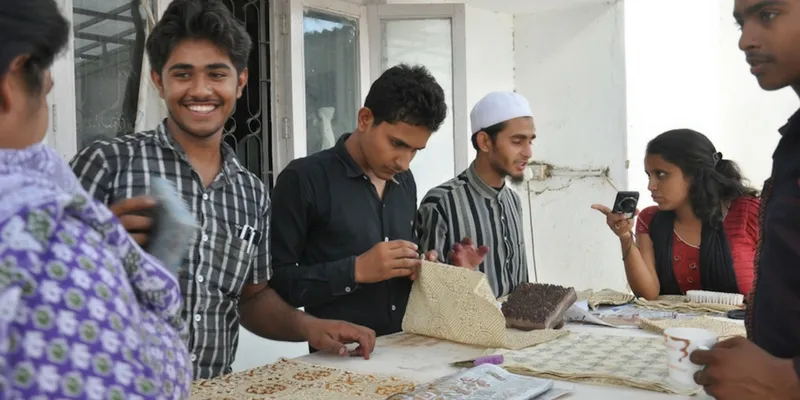
At Somaiya Kala Vidya, 10-12 traditional textile artisans are taken on board each year across different craft forms to provide them with all essential tools to help establish themselves as individual artisan designers. For a period of one year, each student is provided with design education by a faculty who prepares them to launch their first collection of textiles or products.
Related read: When three B-school friends left lucrative careers to support Indian artisans
Courses are run on a modular basis—six intensive residential two-week courses over the 11-month period. Between courses, students are given homework to ensure that they can implement learning in their ongoing work. The courses are taught by a visiting faculty, who are professional design educators, supported by two permanent faculty, who are Artisan Design graduates from Kutch.
“Due to the restriction of current facilities, courses are limited to 11 participants. Two courses can be operated consecutively during a year. In 2017, Somaiya Kala Vidya has one course operating with 10 participants,” says Judy.
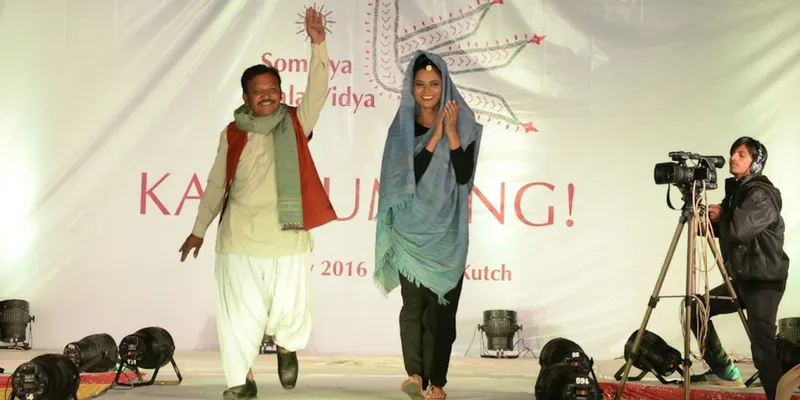
Marching ahead
Although more than 30 artisans have graduated from the institute, they are facing challenges in raising funds for educating their current year’s (2017) class of 11 students. The Kala Vidya is currently running a crowdfunding campaign to raise funds for the education of the artisans.
The school is also planning to build another campus on a land in Adipur. “An architectural plan has been developed by avant-garde architect Hemen Sanghvi. Once the campus is built we will expand to 3-D crafts in addition to textile arts. We will also have a museum, exhibition space and shop,” says Judy.







